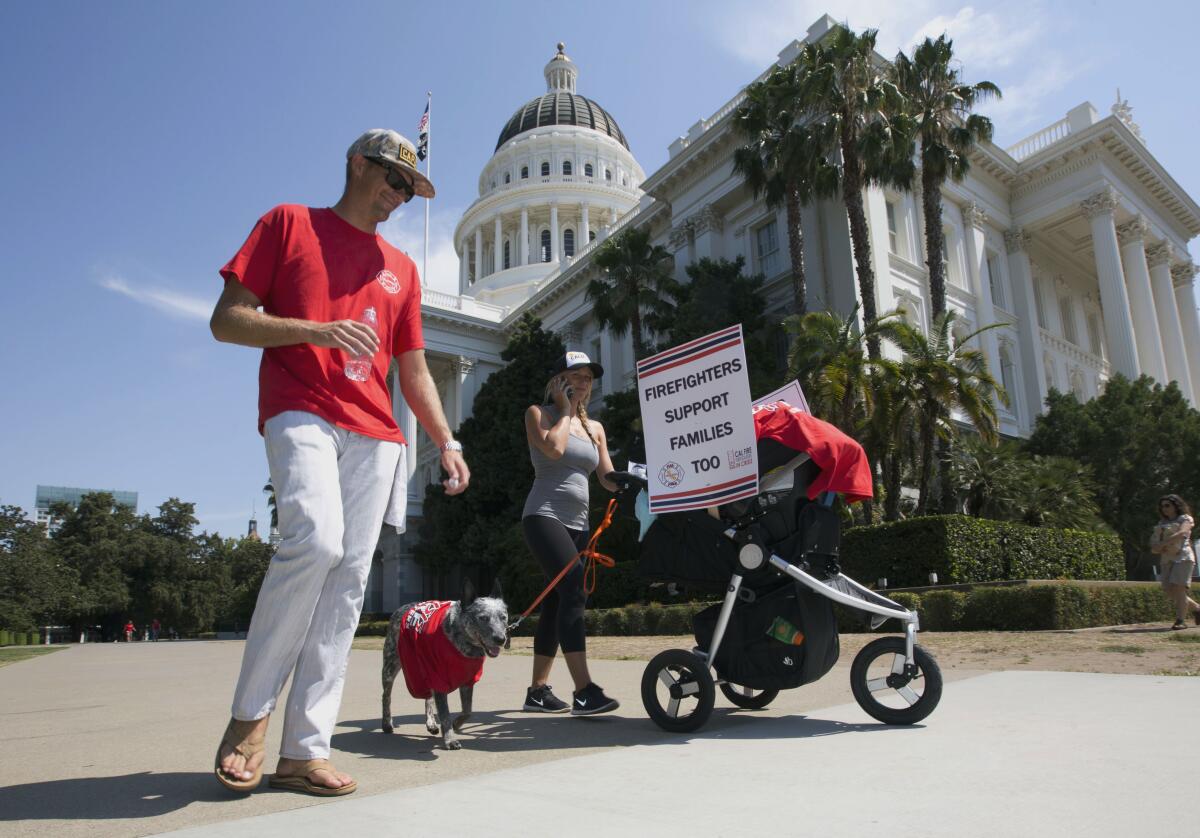Proposed program seeks to provide confidential mental health care to first responders

A new program proposed by Supervisor Nathan Fletcher would expand mental health care to all current and retired first responders
More first responders lose their lives to suicide than in the line of duty.
This is what county Supervisor Nathan Fletcher had in mind when he drafted his proposal to provide confidential mental health services to all first responders in San Diego County, even if they are retired. The proposal is up for approval at next week’s Board of Supervisors meeting.
“If we expect folks to run into harm’s way to protect us, the least we can do is come up with innovative and creative ways to help them,” he said by phone.
The program would be named after Cal Fire Capt. Ryan Mitchell, who worked at a Cal Fire station in El Cajon and committed suicide in November 2017.
His father Will Mitchell, a chaplain for the California Fire Chaplain Association which serves Cal Fire, said his son took his own life after working 19 days straight during the record-breaking 2017-18 fire season.
“At the end of 2017, he found out how far he could push himself,” Mitchell said by phone.
While public safety departments in the county already offer these kinds of services to their employees, Fletcher said the stigma surrounding mental health often keeps first responders from using them.
A 2017 study by the Ruderman Family Foundation shows 243 first responders - including police and firefighters - died as a result of suicide that year, compared to 222 who died in the line of duty.
“We’ve come to understand that the culture still remains that first responders don’t have the opportunity (to talk) or they don’t talk,” Mitchell said.
Fletcher said there is no way to estimate how many people will actually use the program, but that the confidentiality of the resources should remove some barriers. His plan also calls for the development of a stigma reduction media campaign targeted at first responders.
“It is really important to recognize that all of these departments are doing a heroic job in providing mental health services … but the sad reality is there are some folks who will not access the resources internal to the department because of the stigma,” Fletcher said.
When it comes to the stigma around asking for help, specifically among first responders, Fletcher said it can be a balancing act because the culture of working in public safety demands a certain degree of toughness.
“The reality is, if a firefighter has to run into a high rise they can’t get up there and decide to turn back. They have to persevere. They have to finish the job,” he said. “The challenge is, how do you maintain that culture while saying, ‘If you are having these types of issues, you need to get some help.’”
The decision to extend this service to retired first responders is something Fletcher decided was mandatory given the traumatic nature of working in public safety. He said this is because the most brutal repercussions of post-traumatic stress disorder don’t tend to manifest until retirees have settled into post-employment.
Mitchell said he hopes this program will lead the way for other public safety departments to expand their mental health services.
“This is the fruition of my work and many other people’s work in the county recognizing this is not only a CalFire, Monte Vista unit issue,” Mitchell said. “Every unit around the country is experiencing this with first responders.”
If approved, Fletcher said the estimated cost of the program would be $450,000 in the 2019-20 budget year and $650,000 in 2020-21.
The Board of Supervisors will vote on whether to approve the program at its Tuesday meeting.
Staff writer Charles T. Clark contributed to this report.
Get Essential San Diego, weekday mornings
Get top headlines from the Union-Tribune in your inbox weekday mornings, including top news, local, sports, business, entertainment and opinion.
You may occasionally receive promotional content from the San Diego Union-Tribune.












